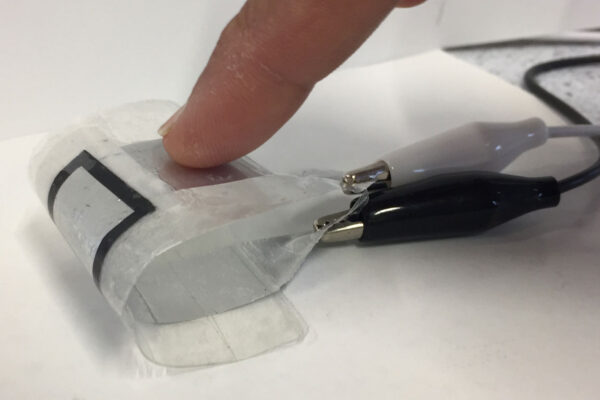
Flexible organic ultracapacitor targets pacemakers and medical implants
Dr Geetha Srinivasan and her team at Queen’s University Ionic Liquid Laboratories (QUILL) Research Centre in Belfast have developed a flexible supercapacitor with a longer cycle life, which could power body sensors.
The flexible device is made up of non-flammable electrolytes and organic polymer composites, which are safe to the human body. It can also be easily decomposed without incurring the major costs associated with recycling or disposing off metal based batteries. It handles 15000 cycles with nearly 100 % efficiency and a specific capacitance of roughly 5 mF/g, which is sufficient to activate biosensors.
The biopolymers are less likely to be rejected by the body, and the ultracapacitor could be made from readily available natural feedstock, rather than expensive metals or semiconductors.
“In modern society, we all increasingly depend on portable electronics such as smartphones and laptops in our everyday lives and this trend has spread to other important areas such as healthcare devices,” said Dr Srinivasan. “The flexible energy storage device consists of conducting polymer – biopolymer composites as durable electrodes and ionic liquids as safer electrolytes. This has a longer life-cycle, is non-flammable, has no leakage issues and above all, it is more flexible for placing within the body.”
The organic storage device could also provide solutions in wearable electronics and portable electronic devices, making these more flexible.
“There is also opportunity to fabricate task-specific supercapacitors. This means that their properties can be tuned and also manufactured using environmentally friendly methods, which is important if they are to be produced on a large scale, for example in powering portable personal electronic devices,” said Dr Srinivasan.
 If you enjoyed this article, you will like the following ones: don't miss them by subscribing to :
eeNews on Google News
If you enjoyed this article, you will like the following ones: don't miss them by subscribing to :
eeNews on Google News



